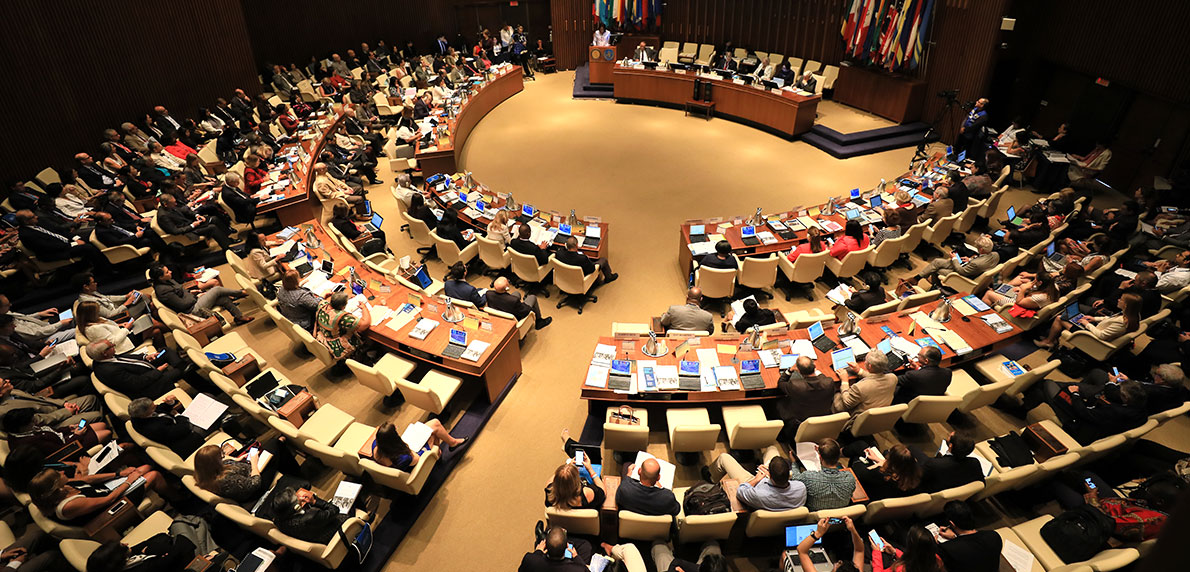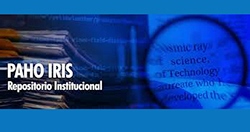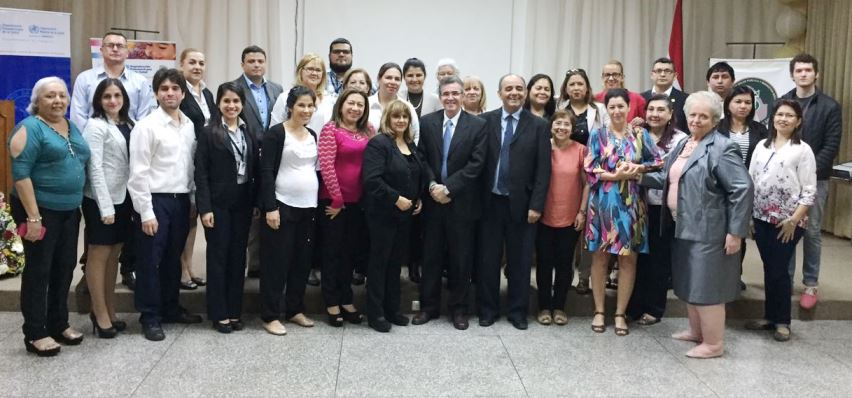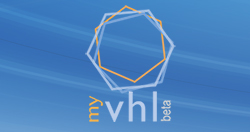During the visit of the Deputy Director of the Pan-American Health Organization/World Health Organization (PAHO/WHO), Isabella Danel, on behalf of the 50th Anniversary of BIREME/PAHO/WHO, the Secretary of Health of the Municipality of São Paulo and PAHO Brazil organized a series of activities, including a visit to a city hospital and the launch of an app for the Programa Mais Médicos.
Category: Sin categoría
PAHO/WHO Deputy Director presents data on Health in the Americas in São Paulo
Content of the most important publication of the Pan-American Health Organization/World Health Organization (PAHO/WHO), Health in the Americas+ 2017 was presented to the faculty of Faculdade de Saúde Pública da USP by the Deputy Director of the Organization, Isabella Danel, as part of the celebration of the 100th Anniversary of FSP-USP and the 50th Anniversary of BIREME.
Initiatives to celebrate BIREME’s 50th Anniversary
In order to celebrate the 50th Anniversary of its foundation, BIREME has undertaken actions and launched several products aimed at recovering the historical trajectory of the Center and its institutional partners, as well as reporting on the development and evolution of its main information products and services in Health Sciences. Get to know some of them.
29th Pan American Sanitary Conference

The 29th Pan American Sanitary Conference, held at PAHO/WHO Headquarters in Washington, DC, on September 25-29, 2017, which brought together the Ministers of Health of the Americas to discuss regional health priorities, culminated after a week of discussions with the adoption of a new health agenda for the Americas and a series of strategies and action plans to address the health challenges of the coming years. The Latin American and Caribbean Center on Health Sciences Information (BIREME) was on the agenda with two main themes: (1) institutional development situation; and (2) replacement of the member countries of its Advisory Committee.
PAHO Institutional Repository for Information Sharing now at the VHL

The PAHO Institutional Repository for Information Sharing (IRIS) has the mission to organize, disseminate, and preserve scientific and technical information generated by the Pan American Health Organization (PAHO). PAHO IRIS comprises all Mandates of the Directing Council, scientific and technical publications, technical meeting and progress reports, besides all articles published in the Pan American Journal of Public Health. In an interoperability effort in cooperation with the Latin American and Caribbean Center on Health Sciences Information (BIREME), PAHO IRIS is now one of the sources of information retrieved at the Virtual Health Library (VHL).
VHL Paraguay pays homage to BIREME’s 50th anniversary

The II Foro Nacional de la Biblioteca Virtual en Salud (BVS) en Paraguay took place in Asuncion as part of the 50-year anniversary of the Latin American and Caribbean Center on Health Sciences Information (BIREME). This event was organized in parallel to the Congreso Científico Internacional de la Federación Latinoamericana de Sociedades Científicas de Estudiantes de Medicina (FELSOCEM).
Wellness Week: health requires constant attention and effort
PAHO/WHO adopts persistent and innovative policies to try to reduce the incidence of non-communicable diseases (NCD) in the Americas, like the Wellness Week, which aims to translate the commitments of the United Nations Declaration into concrete actions in the countries. Considering that there is an increasing association between communicable and non-communicable diseases, it is even more important to prevent NCD, such as cardiovascular diseases, diabetes, and some types of cancer associated to lifestyle and even a growing association between NCDs and communicable diseases, it is increasingly important to prevent non-communicable diseases.
Ecuador promotes scientific investigation in health at national level with BIREME support
The Jornada Nacional de Investigación, Regulación y Desarrollo de la Investigación Científica was held in Quito, Ecuador, from September 13 to 15, organized by MSP, with the support of PAHO/WHO and BIREME. The objective was to generate input for the design of policies, strategic guidelines and norms to strengthen the development of scientific research on health nationwide. One of the highlights of the activities developed was the re-launching of the Ecuador Virtual Health Library Ecuador, meetings, round tables, and conferences about research; in addition to workshops—one about access and use of scientific information and another on scientific communication.
Ensuring that new generations have access to information
Considering the amount of knowledge and skills that the new medical professional may need to care for the health of the population, easier and quicker access to scientific and technical information, updated and placed in the context of the realities found in different medical urgency and emergency situations, is certainly a component that can make a difference in the quality of the clinical decisions made by these young physicians. With this purpose, about two thousand medical students from Latin America assembled in Asuncion, Paraguay, for the XXXII FELSOCEM, were introduced to the products and services of BIREME, and participated in a workshop on access to and use of scientific and technical information in health.
MyVHL: A customized information product

BIREME launches a new customized information product for Virtual Health Library (VHL) users. This new functionality is called MyVHL and stores information and preferences of users to provide customized services, such collections of selected documents, defining themes of interest to receive alerts of new documents, history of previous searches, list of favorite links, and users’ own publications.